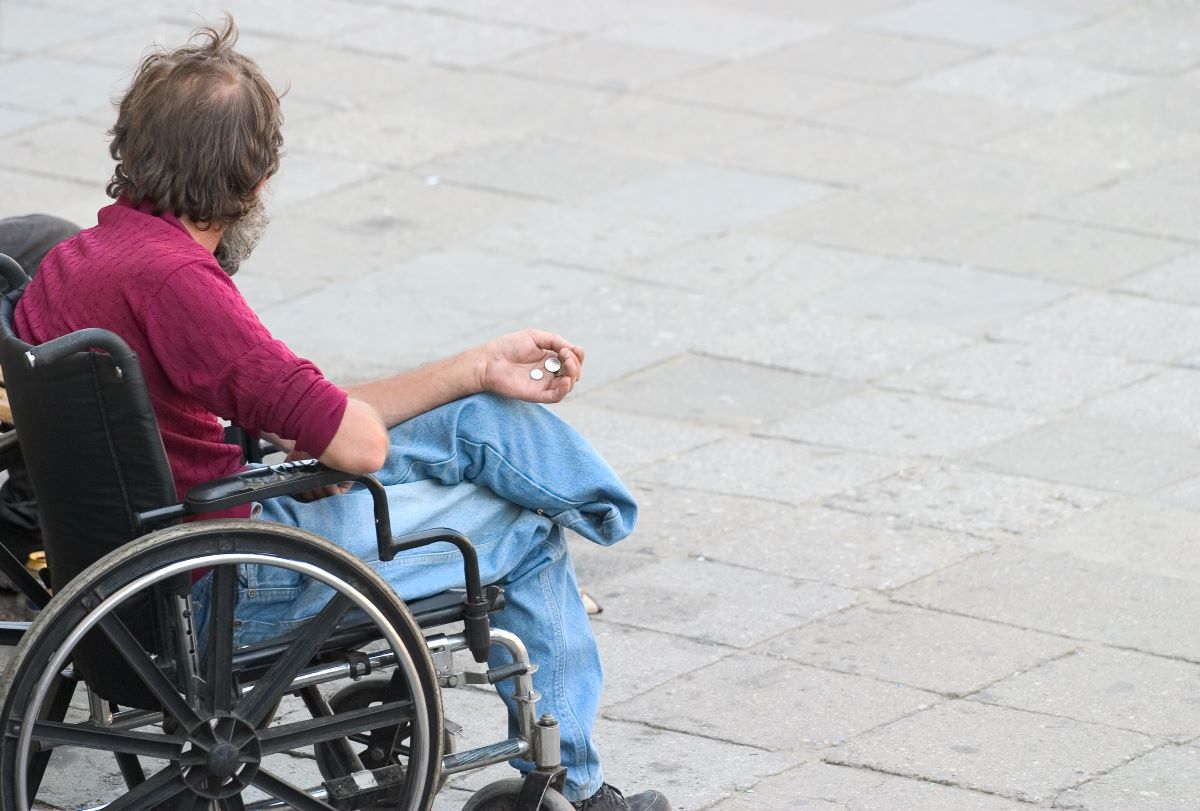How the Hell Do You Criminalize Homelessness?
That’s a question I get asked by people from time to time.
How do you make it illegal to be disabled and, therefore, unable to earn enough money to live on?
How do you make it illegal to be elderly and, despite working for your entire life, never make enough income to put away for your old age?
How do you make it illegal to be a young, single mother who can’t afford a place to live for herself and her children despite working two jobs, yet she has to live in a car?
I’ve heard people around the world ask this question, and I’ve heard their confusion because this was supposedly the same country that hung a sign on the Statue of Liberty that literally says that you should send us your homeless! If you don’t believe me, read the poem by Emma Lazarus, which is engraved at the base of the statue.
I am putting aside my feelings on the whole fact that this is Native Indigenous land if we even take that poem at face value. We have to ask why the powers at the time agreed to those words being put on the main entryway into America.
I had a history teacher who spent some time on this discussion. While I thought the class was very boring, I always remembered his point about the real motive being to encourage cheap labor from poverty-stricken, downtrodden masses who would work for next to nothing to build the wealth of the elite.
All these years later, the wealthy, the greedy, and the elite are still making money on the backs of poor people.
Very little has changed, except that they need those people less and less. Automation already eliminated many jobs, and with the advent of AI robotics and artificial intelligence in general, the need for those poor, desperate workers is becoming even less important.
Maybe somebody should hang a new sign on the base of the Statue of Liberty that reads, “No Vacancy.” America has no idea what to do with its homeless people.
America is also a “blame the victim” type of society. There was a time when homelessness was much less prevalent, and most people experiencing homelessness were said to be drug addicts and alcoholics. Maybe that was never true, but it makes it so easy to blame the homeless person by saying it is the consequence of their own bad choices.
It is harder to do when you have older people on the streets who worked their whole lives and disabled people who do not have an addiction but are chronically ill. Is it their fault for being ill or growing too old to remain in the income-earning workforce? Are these people criminals?
I could have lived all right as a homeless person in a not-too-huge RV. So long as I could recharge batteries and devices and have climate control, I could have made it work. Still, as if the horrors of poverty and being priced out of housing weren’t bad enough, the criminalization of homelessness is the greatest nightmare of all.
People in RVs are in as much danger as people in tent cities.
It is stressful enough to have to figure out each day how to get healthy food, clean, safe water, and safe places to park and be left in peace. When you are homeless, you have all of that to worry about while also living on constant yellow alert, looking over your shoulder for police and criminals alike.
The police are not your friend, aiming to protect you from the bad people who would hurt you or steal from you. Ironically, just like a criminal stealing from you, as a homeless person, you can lose all your property when police are involved through encampment sweeps or forcing you to abandon your vehicle.
As the criminalization of homelessness increases, I find it more imperative than ever to keep my head down and keep everything “close to the vest,” which is what I have been doing all along.
So many people, even those priced out of housing themselves, do not see danger in sharing information. They are oblivious to the power of information or the potential dangers of “Big Brother” tracking.
One of the reasons I do not have a phone is because even (or especially) the free Medicaid phone is a tracking device. If I had one, I’d take the battery out and leave it in storage, to be honest. Instead, I use my computer or tablet on wifi. Of course, that’s not secure at all, but it has a different layer of protection.
I stay near the agency that helps homeless people in this area. I stop in and get fruits and vegetables donated by local farms or speak to my social worker. They keep me abreast of what is going on with different housing lists.
This area has too many people needing help and too few resources. They still haven’t created a safe parking program, and the construction of new affordable housing is slow. The massive influx of residents to this county during and since COVID-19 (people fleeing the collective five boroughs of New York City) has strained the already broken system to the point of truly breaking down.
Churches in this area often have food or clothing and other odds and ends available, but they don’t have handicapped-accessible vans to give away. Mostly, they don’t have much to offer those who aren’t church members.
Thousands of people cannot find a place to live, can’t be left in peace in a vehicle or tent, can’t get goods and services, but they are the ones labeled “criminals”?
The real criminals are the ones sitting on mountains of wealth, overcharging for everything, including slum housing, and then calling for laws to criminalize their own victims.











